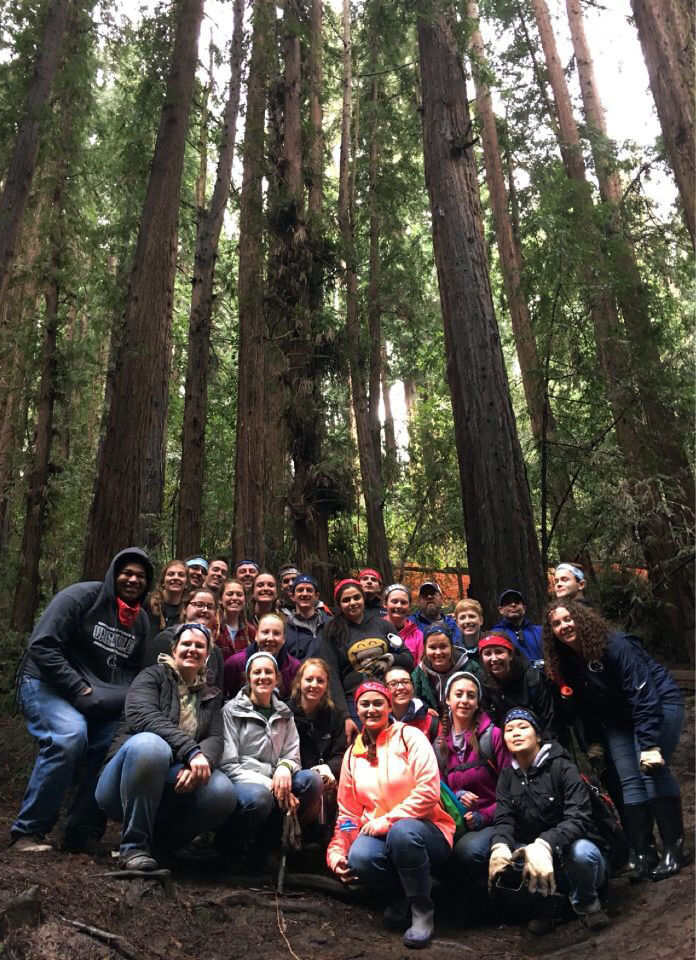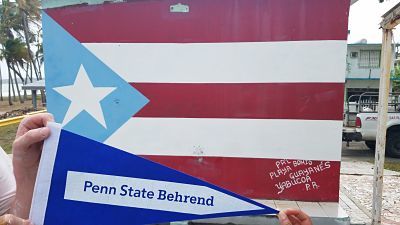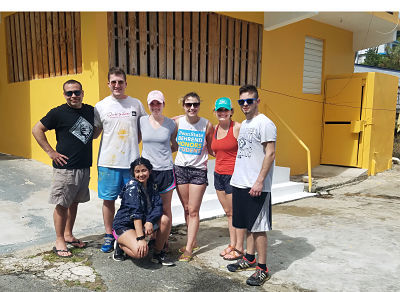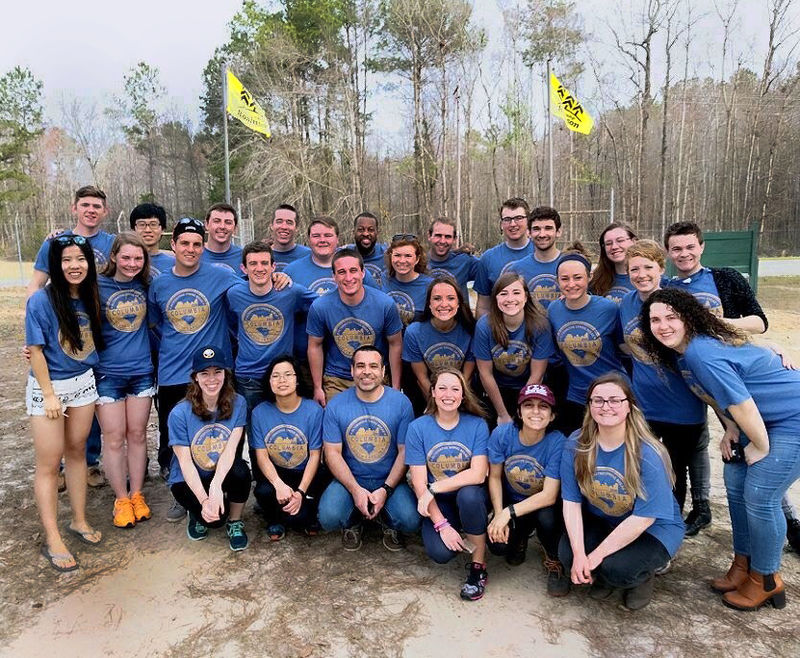
Alternative Spring Break trip participants during the 2016 service trip to South Carolina. Learn more about ASB 2016. To apply for an Alternative Spring Break trip, contact Civic and Community Engagement early in the fall semester for more information.

Alternative Spring break participants during the 2018 service trip to Houston, Texas. Learn more about ASB 2018.
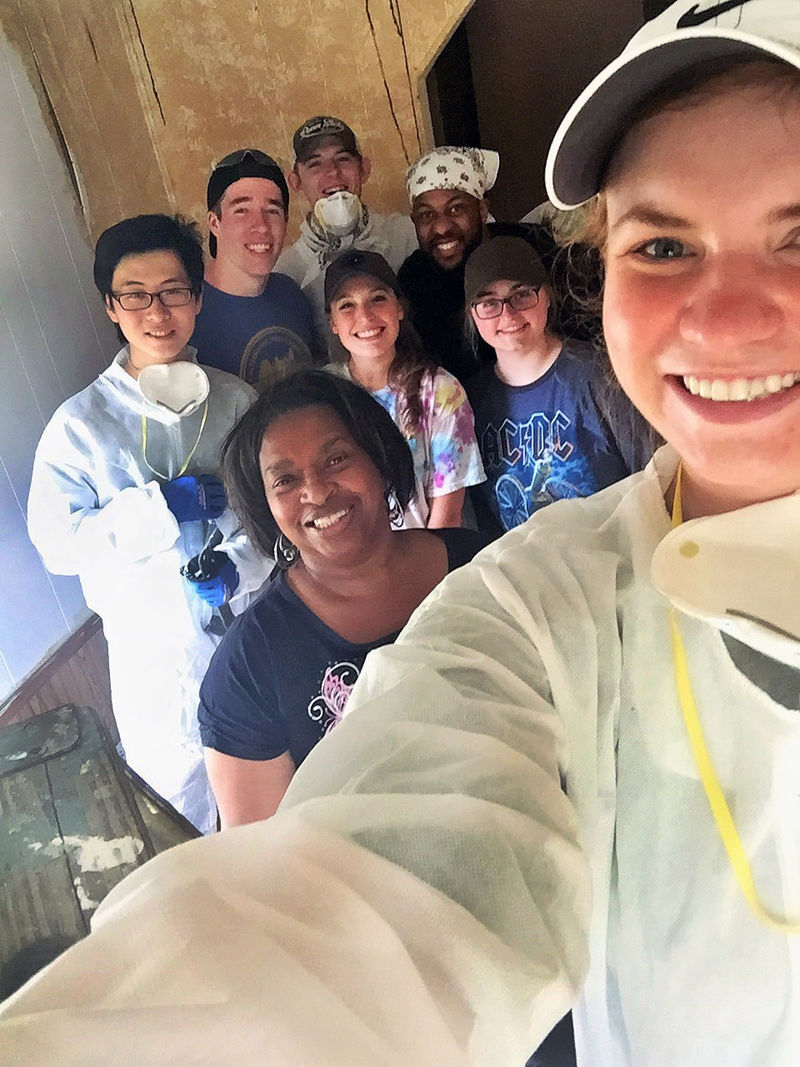
Alternative Spring Breakers serving in Columbia, South Carolina, on the 2016 trip. Learn more about ASB 2016.
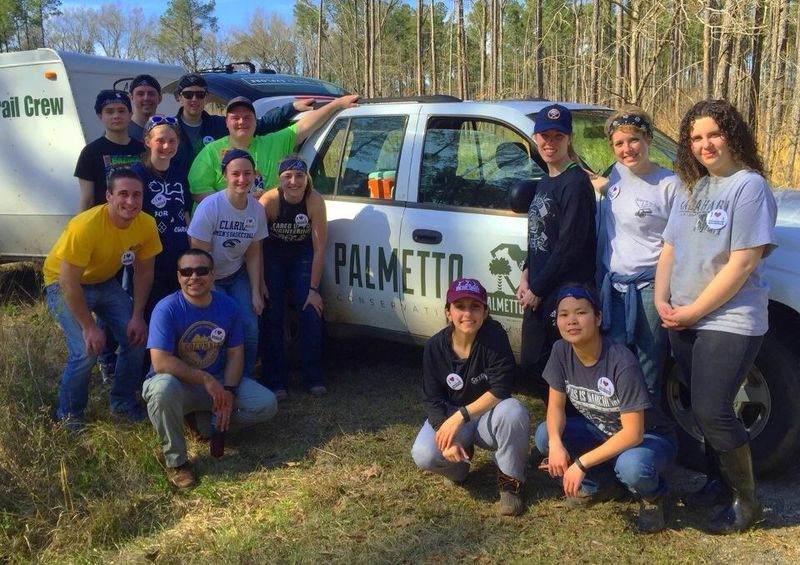
A group of the 2016 Alternative Spring Break participants work with Palmetto Conservation to clear trails while serving in South Carolina. Learn more about ASB 2016.
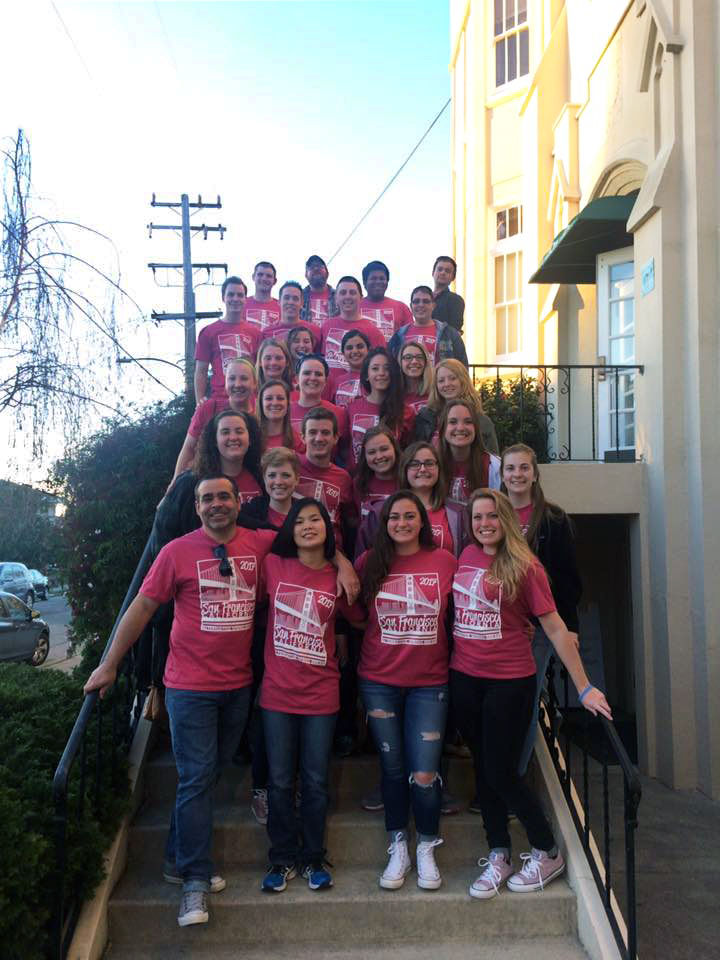
Participants of the 2017 Alternative Spring Break pose in San Francisco/Oakland, CA. Learn more about ASB 2017.
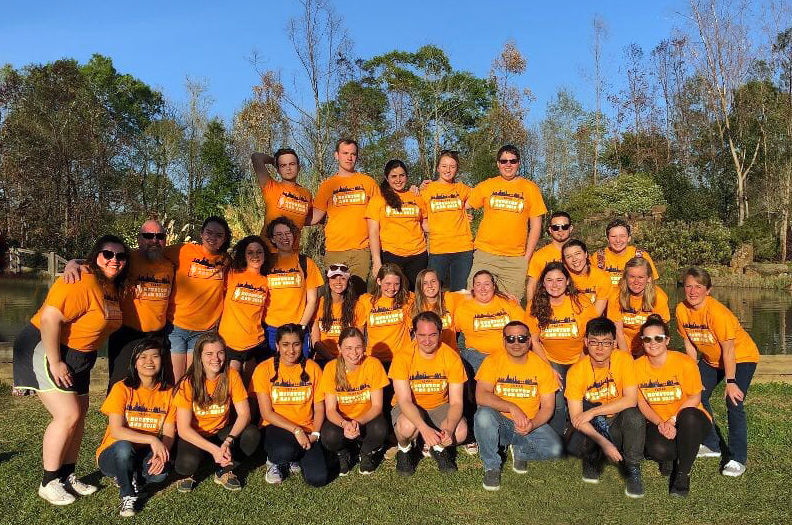
The 2018 Alternative Spring Break trip participants, serving in Houston, Texas, focused on disaster relief. Learn more about ASB 2018.
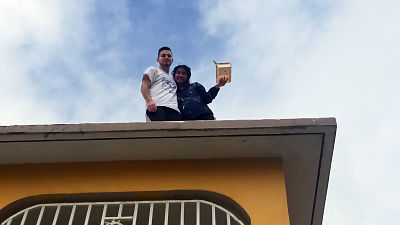
Alternative Spring Break participants Seth Cowan and Karishma Mali pose while painting a house they've dubbed "The Marigold House" for the cheery yellow paint chosen by the owner. This is their second day serving at this house in Puerto Rico and can be seen here touching up white paint on the exterior trim.
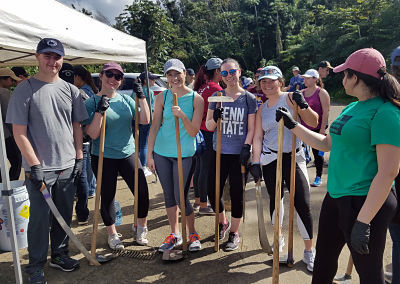
Before heading out to El Toro trail in El Yunque National Forest, Puerto Rico's most popular rain forest destination, students picked their trail maintenance tools. All maintenance work must be done with hand tools, since one of the unique stipulations the National Park Service must follow for this particular trail is a "no motorized equipment" rule. This trail is a difficult climb, covered in mud and debris still remaining from the natural disasters that brought down the majority of the canopy in 2017. The lack of canopy allows strong vines and grasses to flourish, making the trail extremely dense and overgrown. Students worked for several hours tackling the vegetation with machetes, rakes, and spades, before beginning their 45-minute hike back out to the trail entrance.
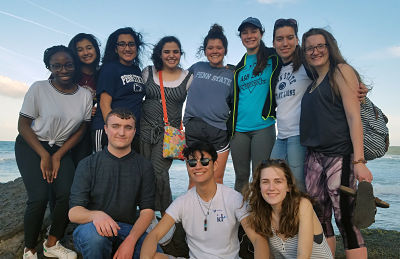
Alternative spring break trippers pose by the water after just landing in Puerto Rico on March 3, 2019. They spent the following week doing trail maintenance in El Yunque National Park, painting houses that suffered water damage from the 2017 hurricanes, landscaping for elderly homeowners, and caring for newly planted trees that will fortify the coastal regions. Applications for Alternative Spring Break trips are open in the fall semester. Contact Civic and Community Engagement for more information!
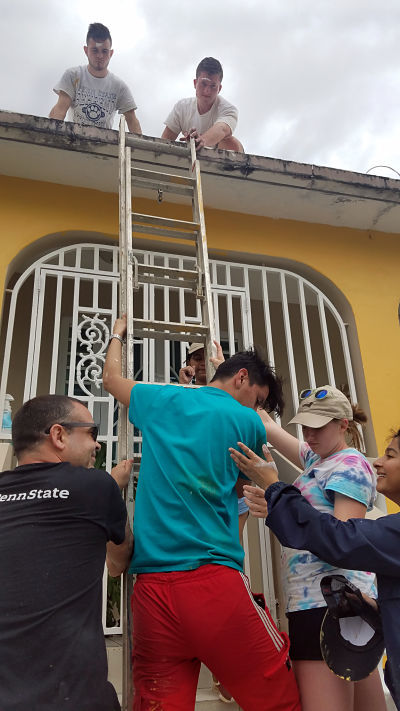
While painting "The Marigold House" during the 2019 Alternative Spring Break, students and staff worked together to safely finish the remaining exterior trim before a storm rolled through in the early afternoon. The homeowner picked this cheery color, which all the painters definitely got on their clothes, hats, and hands over the course of the two-day project.
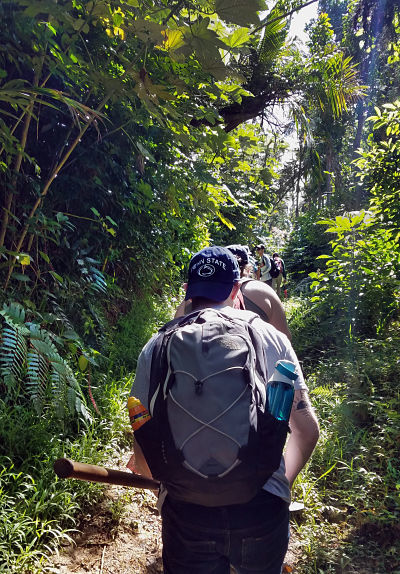
Students hiked up El Toro trail in El Yunque National Forest, Puerto Rico's most popular rain forest destination, and picked their trail maintenance tools. All maintenance work must be done with hand tools, since one of the unique stipulations the National Park Service must follow for this particular trail is a "no motorized equipment" rule. This trail is a difficult climb, covered in mud and debris still remaining from the natural disasters that brought down the majority of the canopy in 2017. The lack of canopy allows strong vines and grasses to flourish, making the trail extremely dense and overgrown. Students worked for several hours tackling the vegetation with machetes, rakes, and spades, before beginning their 45-minute hike back out to the trail entrance.
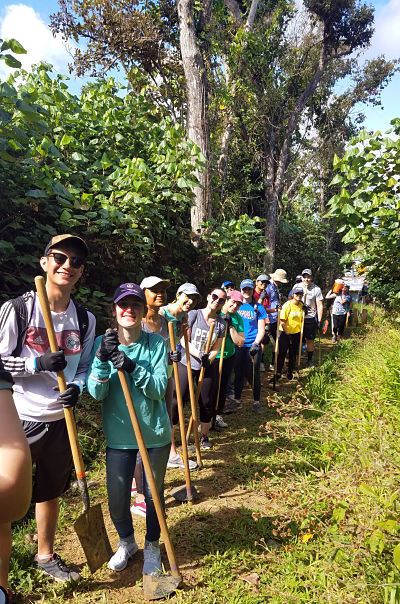
Students out on El Toro trail in El Yunque National Forest, Puerto Rico's most popular rain forest destination, where they picked their trail maintenance tools. All maintenance work must be done with hand tools, since one of the unique stipulations the National Park Service must follow for this particular trail is a "no motorized equipment" rule. This trail is a difficult climb, covered in mud and debris still remaining from the natural disasters that brought down the majority of the canopy in 2017. The lack of canopy allows strong vines and grasses to flourish, making the trail extremely dense and overgrown. Students worked for several hours tackling the vegetation with machetes, rakes, and spades, before beginning their 45-minute hike back out to the trail entrance.
